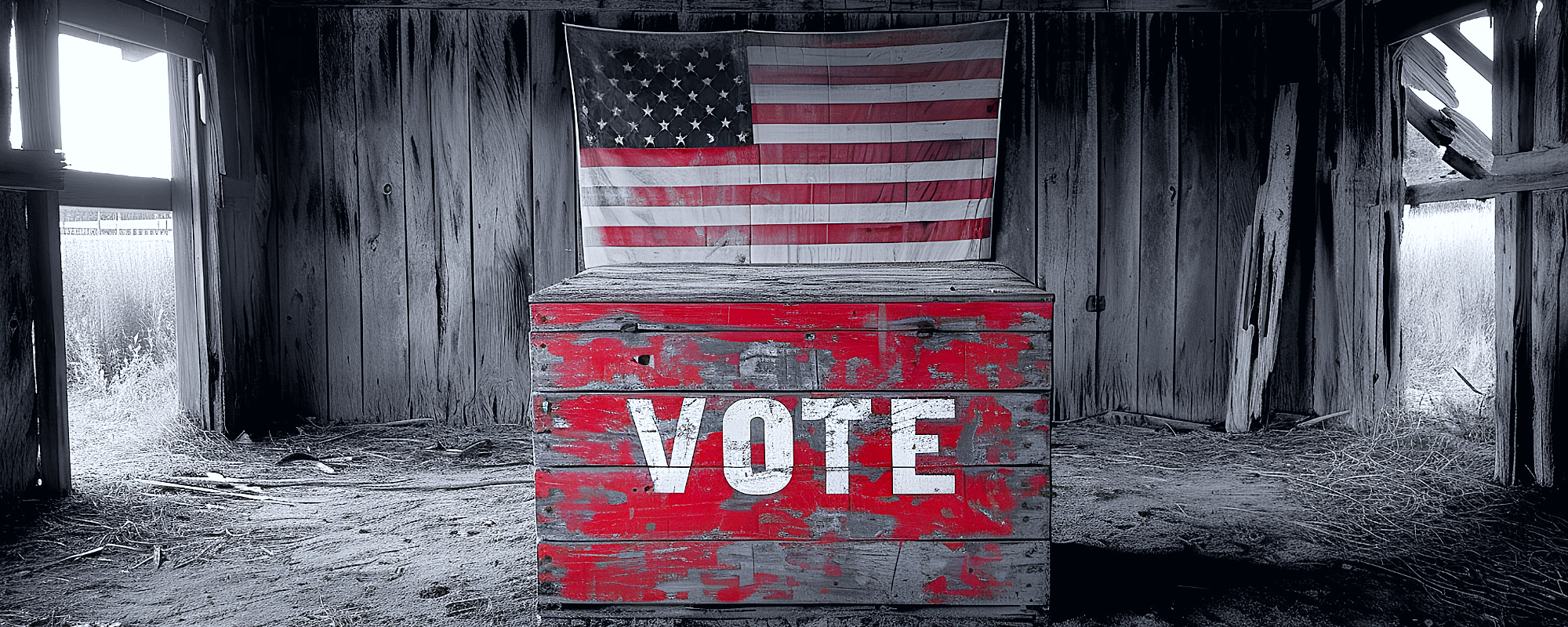How Election Years Can Impact Rural Real Estate Markets
Election Year Impacts
As a rural property owner or potential buyer, you might have noticed a shift in the real estate market during election years. It's not your imagination—presidential elections tend to introduce uncertainty that can directly affect property transactions.
From fluctuating interest rates to changes in government policies and agricultural subsidies, the election cycle can create hesitation among buyers and sellers alike. At Clark Company Ranch Real Estate, we have a front-seat view of how election years are often challenging for rural real estate and can offer insights into how to navigate the market during these unpredictable times.
Why Elections Can Slow Down Rural Real Estate
Presidential election years can be challenging for rural real estate due to several factors:
No. 1: Economic Uncertainty
Elections often bring uncertainty about the economy, especially when it comes to land prices, taxes, and volatility in commodity markets. For ranchers and farmers, the outcome of the election could affect the agricultural industry, influencing the prices of crops and livestock. This uncertainty may cause them to hold off on buying or selling land.
The high cost of food is a huge topic in this year’s election cycle, and thus tied directly to agricultural real estate. According to the U.S. Government Accountability Office, last year U.S. consumers saw the largest annual increase in food prices since the 1980s—about 11% from 2021 to 2022.
Higher input costs for farmers are translating into higher prices on the grocery shelves. According to USDA, input costs, including fertilizer, fuel, land, machinery, and labor, have increased by 28% since 2020. Inflation contributed to the increase, as well as global disruptions to the food supply chain and Russia’s invasion of Ukraine in 2022.
Former President Trump is arguing that high food prices are a result of the policies of the Biden-Harris administration. Whereas Vice President Harris argues “price gouging” from large corporations is to blame. Corporations, however, say the rise in prices is due to supply chain demands triggered by the pandemic and inflation.
No. 2: Taxes and Interest Rates
In mid-September, the Federal Reserve cut interest rates by half a percentage point, which could encourage buyers to purchase land in the coming years. Fed Chair Jerome Powell has said that upcoming elections don’t influence decisions on interest rates.
However, while interest rate policy typically fluctuates during election years, launching a new rate-cutting phase within 10 weeks of an election has only occurred twice before—once in 1976 and again in 1984.
Several provisions from the Tax Cuts and Jobs Act of 2017 are scheduled to expire at the end of 2025. Presidents cannot directly increase or decrease taxes, but the winning candidate’s tax plan could significantly impact Congress in its decision making.
Trump and Harris disagree about the corporate income tax rate (he wants to decrease it, she wants to increase it), and both candidates’ plans will increase the national deficit. Check out this U.S. News article for a full breakdown.
Also, 1031 exchanges, which let property owners delay paying taxes by reinvesting in similar properties, are under review. If these rules are limited or removed, sellers may prefer debt-financed “cashout” deals instead of property sales.
No. 3: Policy Changes
Another important factor impacting the ranch real estate market is potential changes in government regulations due to the election. Some policies currently under scrutiny include The Farm Bill, trade tariffs, and climate policies.
The possibility of passing a new Farm Bill before the election is slim, so another one-year extension is most likely. Congress has yet to agree on the amount of funding for farming and food assistance in the bill, as well as funding for some key climate conservation practices.
Strained relations with China have put foreign trade back in the spotlight. According to a USDA report, tariffs put into place by Trump cost U.S. ag producers approximately $27 billion in lost exports between 2018 and 2019. However, the Biden administration didn’t reverse them as expected over the last four years.
Lastly, upcoming energy and climate policy decisions will shape the regulations, incentives, and market opportunities within ranch real estate. While neither candidate has released an official plan, their track records indicate where they stand.
Conclusion
Subject to the outcomes of the upcoming elections, nationally and locally, we look forward to a positive future for our great country. While election years can introduce uncertainty into rural real estate markets, they also present opportunities for those who stay informed and adaptable.
By understanding the potential impacts of changing policies and economic shifts, both buyers and sellers can make informed decisions that position them for success. Clark Company Ranch Real Estate is committed to guiding our clients through these unique market conditions with expertise and care.

